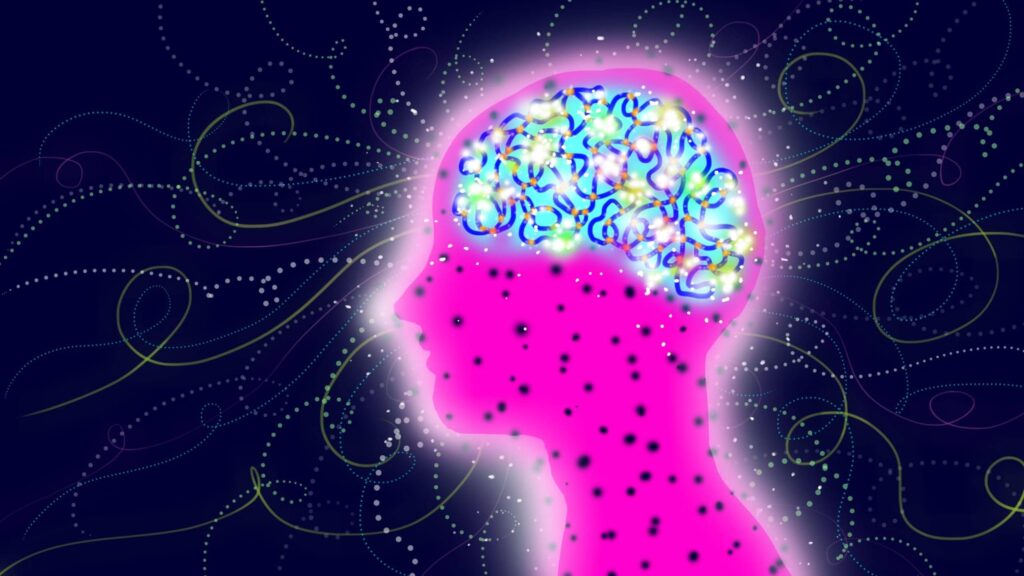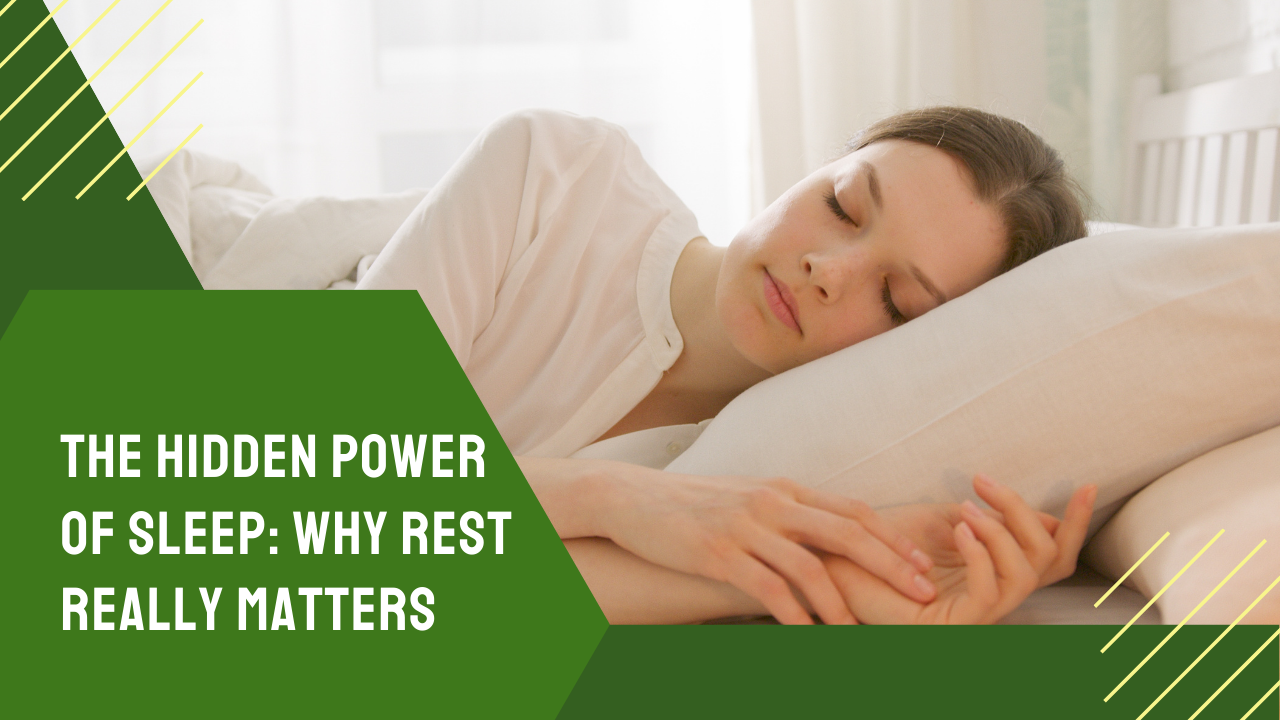In our busy lives, sleep is often overlooked in the pursuit of getting more done. Many believe that sacrificing sleep shows commitment, with phrases like “I’ll sleep when I’m dead.” However, research consistently shows that not getting enough sleep can seriously harm your health and shorten your life. Sleep isn’t optional—it’s essential for your well-being.
Adequate sleep helps your body recover, keeps your mind sharp, and balances your emotions. Without enough rest, thinking, memory, and stress management become more difficult. It can also weaken your immune system and increase the risk of serious conditions like heart disease or diabetes. Once people realize how crucial sleep is, they may start prioritizing it rather than seeing it as something to skip. Taking time to rest is one of the best things you can do for your health and mental clarity.

🧬 The Science Behind Sleep
Sleep is much more than simply resting with your eyes closed. It’s a complex biological process that involves different brain areas and hormonal signals working together. Our sleep cycle consists of two main stages:
- REM (Rapid Eye Movement) sleep: This stage is when dreams happen. It’s crucial for enhancing memory, learning, and emotional processing. REM sleep helps consolidate the information we’ve learned throughout the day.
- Non-REM sleep: This stage is divided into different levels of depth and is important for physical recovery. It helps with muscle repair, immune function, and overall healing. Non-REM sleep is when your body does its deep restoration work.
While you sleep, several important processes take place in your body. These include muscle repair, where tissues rebuild from the day’s activities, and hormone regulation, which helps maintain balance. Your brain also goes through a detoxifying process, thanks to the glymphatic system, which clears out waste products. Essentially, sleep serves as your body’s nightly maintenance mode, ensuring everything functions at its best.
❤️ Why Sleep Is Non-Negotiable for Health
If food is the fuel for your body, then sleep is the recovery phase that your body requires to function at its best. Without enough sleep, your health can suffer in many ways. Studies have shown that chronic sleep deprivation is linked to several serious conditions, such as:
- Heart disease: Lack of sleep can increase the risk of heart-related issues by affecting blood pressure and heart function.
- Diabetes: Poor sleep can interfere with the body’s ability to regulate blood sugar levels, raising the risk of type 2 diabetes.
- Obesity: Sleep deprivation disrupts hormones that control hunger, leading to overeating and weight gain.
- Stroke: Insufficient rest can increase the chances of stroke due to its negative impact on blood pressure and cardiovascular health.
- High blood pressure: Not getting enough sleep can cause blood pressure to rise, putting extra strain on the heart and arteries.
Even just a few nights of poor sleep can cause a spike in cortisol, the stress hormone, leading to higher inflammation in the body. This imbalance can also disrupt your blood sugar levels, making it harder for your body to regulate energy.
🧠 Sleep and Brain Function: Your Mental Superpower

Your brain doesn’t stop working while you sleep—it actually becomes more active. Sleep plays a vital role in several key brain functions:
- Memory consolidation: Everything you’ve learned throughout the day is processed and stored in your brain during sleep, helping you retain new information.
- Focus and cognition: When you don’t get enough sleep, your ability to make decisions, solve problems, and concentrate declines significantly.
- Creativity: REM sleep, in particular, helps enhance creativity and the ability to think outside the box.
Think of sleep as your brain’s way of recharging. Skipping it is like trying to use your phone on a 1% battery—it won’t function properly.
😌 The Emotional Benefits of Quality Sleep
Have you ever noticed that everything feels more overwhelming when you’re tired? That’s because sleep is vital for emotional regulation. Without enough rest, your emotional responses are stronger, especially to negative situations. Sleep-deprived individuals often experience heightened anxiety, irritability, and sadness. REM sleep helps your brain process emotions, making it easier to handle stress and emotional challenges. Getting enough sleep supports a more balanced mood and better emotional resilience.
- Lack of quality sleep intensifies emotional responses, making you more reactive—especially to negative events or stressful situations.
- Sleep deprivation increases vulnerability to mental health issues, including anxiety, mood swings, and feelings of depression.
- REM sleep plays a vital role in emotional healing, helping your brain process difficult experiences and better manage stress and trauma.
Good sleep = better mood, resilience, and relationships.
🏋️ Sleep and Physical Fitness: Not Just About the Gym
- Muscle growth and repair occur during deep sleep, allowing your body to recover from exercise.
- Sleep helps regulate important hormones like testosterone and growth hormone, which are essential for building strength and supporting recovery.
- When you don’t get enough sleep, it can lead to increased cravings, derail your diet, and decrease energy levels, making it harder to perform well during workouts.
No matter how hard you train, if you’re not sleeping, you’re not growing.
🛡️ How Sleep Affects Your Immune System

- While you sleep, your body produces cytokines, proteins that help fight infections and reduce inflammation.
- Research shows that people who sleep less than six hours a night are more likely to get sick, with a higher risk of catching colds and viruses.
- Sleep deprivation also reduces the effectiveness of vaccines, making it harder for your body to respond to them properly.
Sleep is essentially your body’s natural shield.
⚠️ The Hidden Dangers of Sleep Deprivation
- Driving while sleep-deprived is just as risky as driving under the influence of alcohol.
- Ongoing sleep deprivation is linked to a shorter lifespan and can severely impact your health.
- It affects your judgment, slows reaction time, and raises the likelihood of accidents and errors.
- Chronic lack of sleep can also lead to cognitive decline, increasing the chances of developing Alzheimer’s and dementia later in life.
Sleep isn’t optional. Skipping it is like gambling with your life.
🧾 Common Sleep Myths—Busted
Myth: “I can catch up on sleep over the weekend.”
Truth: You can’t fully make up for lost sleep. Consistent sleep patterns are more important.
Myth: “Older adults need less sleep.”
Truth: Most adults still require 7–9 hours of sleep; aging simply makes it harder to get deep, restful sleep.
Myth: “Watching TV helps me fall asleep.”
Truth: Screens emit blue light, which blocks melatonin and makes it harder to fall asleep.
Understanding the truth can help you build better habits.
🌙 How to Improve Your Sleep Quality
Want to level up your sleep game? Here’s how:

🕗 1. Stick to a Consistent Sleep Schedule
Try to go to bed and wake up at the same time every day, even on weekends. This helps regulate your body’s internal clock, making it easier to fall asleep and wake up naturally.
📵 2. Limit Screen Time Before Bed
Avoid using phones, laptops, or watching TV at least an hour before bed. The blue light from screens interferes with melatonin production, making it harder to fall asleep.
🌡️ 3. Optimize Your Sleep Environment
Ensure your bedroom is cool, dark, and quiet to promote better sleep. Consider investing in a high-quality mattress and blackout curtains to block out light and reduce distractions.
☕ 4. Cut Caffeine After 2 PM
Caffeine can stay in your system for up to six hours. Avoid drinking coffee or other caffeinated beverages in the afternoon to prevent sleep disruptions later in the night.
🚶 5. Get Natural Light During the Day
Exposure to natural light helps regulate your circadian rhythm, signaling to your body when it’s time to be awake and when it’s time to sleep. Try to spend some time outside during daylight hours.
🧘 6. Manage Stress
Engage in relaxing activities before bed, like meditation, journaling, or reading. These practices can help calm your mind and reduce the stress that can interfere with sleep.
🍷 7. Avoid Alcohol Before Bed
While alcohol may make you feel drowsy, it disrupts the quality of your sleep by reducing REM and deep sleep stages. Avoid drinking alcohol at least a few hours before bedtime.
Improving your sleep starts with developing healthier sleep habits.
Conclusion
In today’s hustle-driven culture, sleep is often seen as expendable—but it’s anything but. Far from being a luxury, sleep is a vital pillar of health, influencing everything from your energy and focus to your mood and immune system. Without it, even the best efforts can fall short.
Whether you’re chasing big goals or simply trying to feel your best each day, consistent, high-quality sleep is a game changer. It boosts productivity, sharpens your mind, and strengthens emotional resilience—making it one of the smartest investments in your well-being.
So before you trade rest for a late-night task, pause and consider: is it worth the toll on your body and mind? Sleep isn’t just downtime—it’s your body’s way of healing, recharging, and preparing you to thrive.
FAQs
- How many hours of sleep do I really need each night ?
Most adults need 7–9 hours of quality sleep each night to function at their best. However, individual needs can vary based on age, lifestyle, and health conditions. - Can I “catch up” on sleep over the weekend ?
Not entirely. While sleeping in may help you feel temporarily better, it doesn’t fully reverse the negative effects of chronic sleep deprivation. Consistent, daily sleep is far more effective than weekend recovery. - What happens to my brain when I don’t get enough sleep ?
Lack of sleep impairs memory, decision-making, focus, and emotional regulation. Over time, chronic sleep loss can increase the risk of anxiety, depression, and even cognitive decline. - Does sleep really affect my physical health ?
Yes—poor sleep has been linked to a higher risk of heart disease, obesity, diabetes, weakened immunity, and hormonal imbalances. Your body heals, repairs, and recharges during deep sleep stages. - What are some tips to fall asleep faster and sleep better ?
Stick to a consistent sleep schedule, avoid screens before bed, create a cool and dark environment, limit caffeine and alcohol intake, and wind down with calming activities like reading or meditation.


